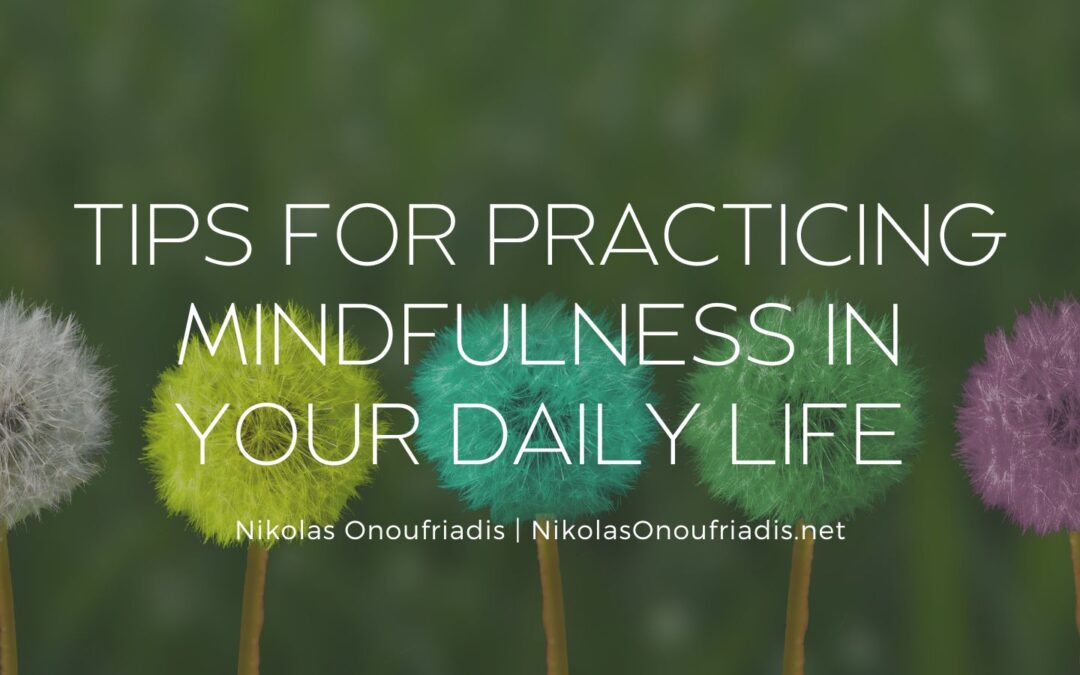Mindfulness is being present at the moment without being judgmental. Practicing mindfulness can help to reduce stress, improve focus, and promote overall well-being. People may benefit from practicing mindfulness in a variety of personal and professional contexts. Here are a few instances:
Work: People who are under a lot of stress and strain at work may find that mindfulness is very useful. Individuals who practice mindfulness may find it easier to concentrate, cope with stress, and be more productive. Deep breathing, meditation, and visualization are a few mindfulness practices that may aid with stress management and concentration.
Relationships: People who are in close relationships may encounter difficulties or have trouble communicating with one another. Being aware may make it easier to remain in the now, listen intently, and communicate clearly. Active listening and nonjudgmental communication are two mindfulness strategies that may be useful in enhancing relationships and resolving problems.
Health: Both physical and mental health may be enhanced by mindfulness. By using mindfulness techniques, people may better manage their chronic pain, lessen their anxiety and depressive symptoms, and get better sleep. Yoga, meditation, and mindful breathing are all mindfulness practices that may help you manage stress and enhance your overall wellbeing.
Innovation and creativity may both benefit from practicing mindfulness. Being mindful and concentrated may help people be more receptive to fresh perspectives, which can boost their creativity and ingenuity in both their personal and professional efforts.
Personal Development: Mindfulness may be beneficial for personal development. People who regularly practice mindfulness can better understand themselves and their emotions, which promotes self-awareness and personal development. Self-reflection and writing are two mindfulness practices that may assist foster personal development.
Start with Your Breath
Your breath is a powerful tool for practicing mindfulness. Try taking a few deep breaths and focusing on the sensation of the air moving in and out of your body. This can help to calm your mind and bring you into the present moment.
Practice Mindful Eating
Eating mindfully can help you appreciate your food and be more present during meals. Before eating, take a moment to understand your food’s appearance, smell, and taste. Chew slowly and savor each bite.
Engage Your Senses
Engaging your senses can help you to be more present and aware of your surroundings. Take a few moments to notice the sights, sounds, smells, and sensations around you. This can ground you in the present moment.
Take Mindful Breaks
Taking mindful breaks throughout the day helps reduce stress and improve focus. Take short breaks to stretch or arms and legs, walk outside or engage in mindfulness practice, such as deep breathing or meditation.
Practice Gratitude
Practicing gratitude can help cultivate a positive mindset and appreciate things. Consciously reflect on what you’re grateful for, such as your health, relationships, or accomplishments.
Be Present in Conversations
Being present in conversations can help you build stronger connections and improve your communication skills. Try listening actively, maintaining eye contact, and avoiding distractions during conversations.
Cultivate a Mindful Environment
Creating a mindful environment can help you to maintain a sense of calm and focus throughout your day. This could include minimizing distractions, incorporating calming scents or sounds, or decorating your space with calming colors or images.
practicing mindfulness can benefit your physical and mental health. You can develop a more mindful and present mindset and improve your overall well-being.

